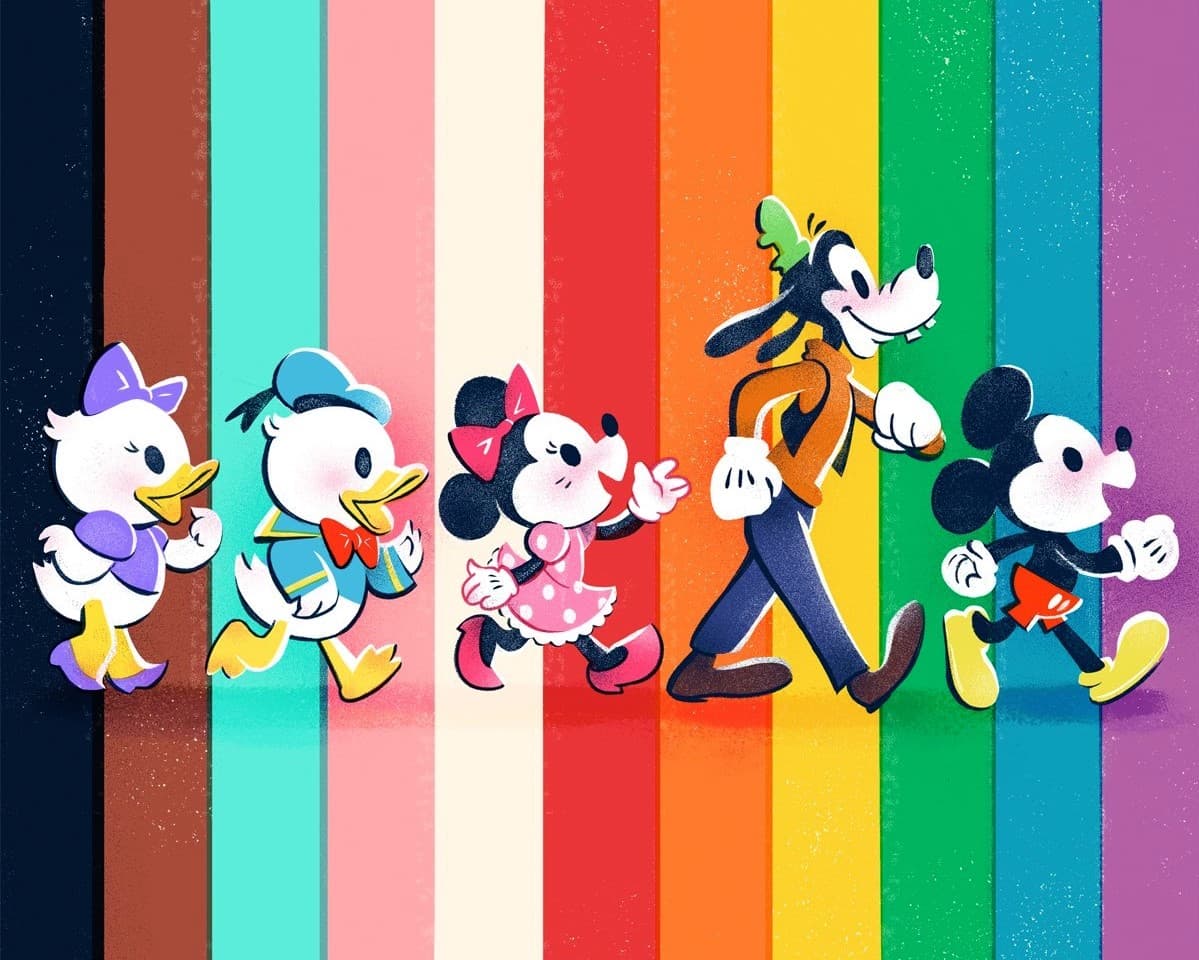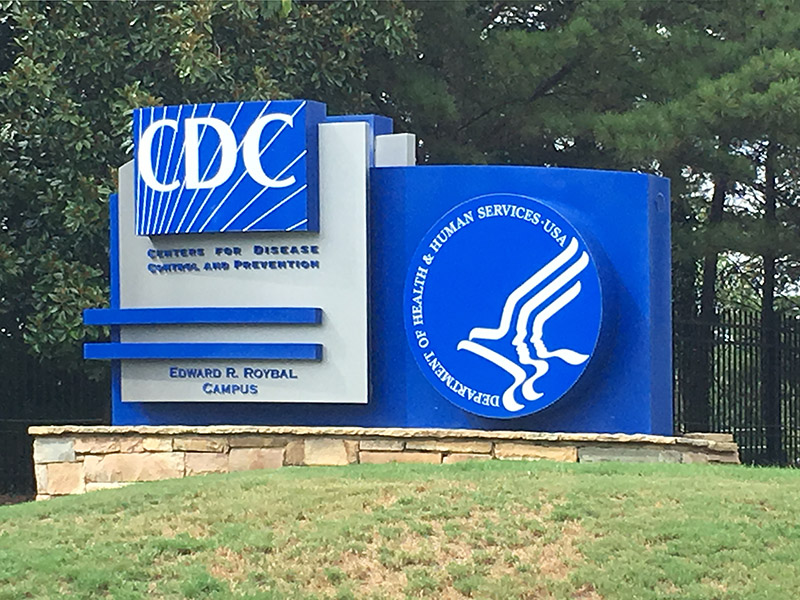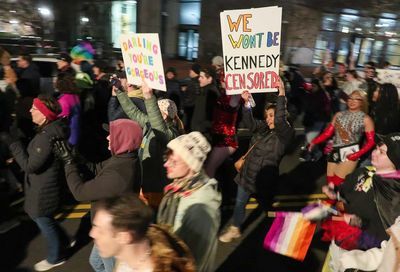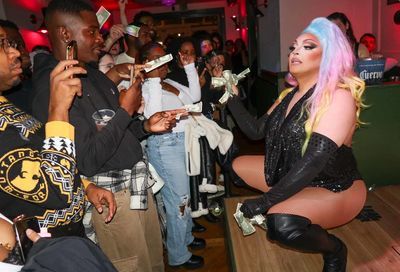LGBTQ groups respond after gay conservative accuses them of exploiting coronavirus for financial gain
Organizations push back against assertion that they are trying to fundraise off of the epidemic by warning that LGBTQ people are more vulnerable

LGBTQ organizations are pushing back after a gay conservative accused them of exploiting the COVID-19 coronavirus pandemic for monetary gain.
The controversy began when local D.C. community health center Whitman-Walker Health, along with 99 other LGBTQ or LGBTQ-friendly organizations, signed onto an open letter warning that LGBTQ people may be “particularly vulnerable” to the effects of COVID-19 due to underlying health issues.
In response, Brad Polumbo, a gay conservative who is a columnist for the Washington Examiner, pushed back against the assertions made in the letter, claiming that LGBTQ groups were simply inserting identity politics in order to capitalize on the COVID-19 pandemic.
He called the letter “just another cynical attempt by left-wing gay and transgender activist organizations to fuel the fake victimhood narrative they need to keep their donor base engaged.”
Related: Gay conservative accuses LGBTQ groups of exploiting COVID-19 to “fuel fake victimhood narrative”
Whitman-Walker Health sent an email to Metro Weekly countering Polumbo’s claims, saying that the letter was “an important vehicle for educating the general public and health care system stakeholders about the overall picture of LGBTQ health at the population level, while informing LGBTQ community members and their loved ones about the importance of taking care of their own health at this time.”
“Mr. Polumbo ignores the particular vulnerabilities that marginalized populations face,” Whitman-Walker Health said in a statement. “Acknowledging those vulnerabilities is an important tool in ensuring that all patients are connected to care and are included in our country’s public health response to this incredible challenge.”
According to Whitman-Walker, Polumbo’s argument that smokers are more at risk of coronavirus complications, whether or not they are LGBTQ, “misses the point.”
“While smokers of every sexual orientation and gender identity are at higher risk, our community is more much more affected by smoking than the general population — in significant part due to the stress of widespread stigma and discrimination against us,” the statement reads. “And studies have shown that LGBTQ people, as a population, are more likely to be affected by cancer and to suffer from ill health generally — which also magnifies the risk from coronavirus.”
Polumbo cited an interview with Dr. Sarah Henn, chief health officer at Whitman-Walker Health, in which she said that people living with HIV are not at higher risk of contracting COVID-related disease, so long as they have a healthy immune system and that they are compliant with antiretroviral therapy so that their viral load remains undetectable.
But Whitman-Walker notes in its response that many people with HIV are not virally suppressed and have damaged immune systems, thus bolstering their claims that more LGBTQ people, especially those with HIV, may be “particularly vulnerable” to the effects of COVID-19.
“Finally, Mr. Polumbo asserts that there is ‘no evidence of any gay or transgender person being turned away from coronavirus testing or treatment due to his or her sexual orientation, nor is there any to provide.’ While we all certainly hope that no one will be turned away from coronavirus testing or treatment (if and when treatment becomes a reality) because of their sexual orientation or gender identity — or because of their race, ethnicity or any other discriminatory reason — research evidence is clear that many LGBTQ people routinely encounter misunderstanding, unwelcoming attitudes, or outright hostility from healthcare providers and staff,” Whitman-Walker’s statement noted. “This is particularly true for many trans and nonbinary people. Out of a fear of this, many LGBTQ people are reluctant to seek medical attention unless they are in crisis.
“Thus, the many organizations that joined in the letter to which Mr. Polumbo objects believe that in this time of crisis it is especially important for healthcare and public health personnel to emphasize an accepting, indeed welcoming, message to everyone — and for all of us, including LGBTQ people, to follow recommended guidelines and promptly seek medical attention when it is indicated,” the statement concludes.
See also: Conservative pastor blames coronavirus on same-sex marriage
Lambda Legal, another one of the organizations signing onto the letter, noted that the open letter was put together by groups considered experts on LGBTQ health and health disparities.
“Like all public health data, these disparities and the social conditions that drive them are about significant differences among groups, not diagnoses of individuals. Unsurprisingly, the disparities are biggest and most serious for those LGBTQ people most affected by discrimination, underinsurance and poverty,” Jennifer Pizer, the director of law and policy at Lambda Legal, said in a statement.
“These are facts, not opinions,” Pizer added. “Just ask the U.S. Office of Disease Prevention & Health Promotion, which confirms both the disparities and their causes. So does recent research by the Kaiser Family Foundation. And the letter’s recommendations are consistent with the recommendations of the federal government’s Institutes of Medicine for reducing anti-LGBTQ discrimination in health care delivery. All of this is consistent with Lambda Legal’s own survey research of our community members’ experiences of discrimination in health services.”
Pizer then turned her attention to Polumbo’s claims, writing: “Polumbo shows no signs of a medical degree or a background in public health. Evidently, unlike the 100+ LGBTQ community groups who joined the letter, he also lacks concern about those of our people who are disproportionately vulnerable.
“On two points, though, he is more or less accurate. First, early indications are that people living with HIV who are virally suppressed and whose immune systems are strong thanks to their medication are not at greater risk. But that’s only half the HIV-positive population,” she added. “Second, viruses don’t discriminate. However, people do. For that, the Lambda Legal Help Desk is open and staffed with attorneys. If you believe you have been discriminated against based on your sexual orientation, gender identity or HIV status, now during this crisis or at any time, please reach out to us for information about steps you might be able to take.”

The Human Rights Campaign Foundation, the educational arm of the Human Rights Campaign — yet another signatory — did not respond to a request for comment but recently published a research brief outlining health and economic risks faced by the LGBTQ community during the COVID-19 public health crisis.
Among other findings, the brief notes that more than 1 in 6 LGBTQ people lack health coverage, with 1 in 5 reporting they have not seen a doctor when they needed to because they couldn’t afford the cost of a doctor’s visit. The brief finds that 37% of LGBTQ adults smoke every day, compare to 27% of non-LGBTQ people. Similarly, 21% of LGBTQ people suffer from asthma, compared to 14% of non-LGBTQ people.
The brief also finds that LGBTQ people are more likely to work in jobs in industries highly affected by COVID-19, thus making them especially vulnerable to the economic fallout from the social distancing required to keep the virus at bay. In total, more than 5 million LGBTQ people, or nearly 40%, work in those vulnerable industries, which include restaurants and food services, hospitals, K-12 and higher education, and retail.
Additionally, only 29% of respondents to HRC Foundation’s 2018 LGBTQ Paid Leave Survey reported that their employer offers paid leave for medical reasons, further underscoring that significant numbers of LGBTQ workers will be economically vulnerable if they are forced to miss work should they become sick.
“We are facing a global public health crisis, and as in all emergencies, the most marginalized are at increased risk,” HRC President Alphonso David said in a statement. “Many in the LGBTQ community may lack the resources to effectively combat COVID-19, lacking access to paid sick leave or living without health coverage, and are more likely to work in an industry that has been most affected by the pandemic, putting them in greater economic jeopardy or increasing their exposure to the virus.
“It is also critical to understand the challenges facing the LGBTQ young person who has been sent home from school to face family rejection or the LGBTQ senior who is more likely to be living alone during this crisis,” added David. “It is important to know and understand the unique impact of the virus on the LGBTQ community so that we can prepare to weather this crisis as we have weathered crises before — by uniting as a community and helping those in greatest need.”
Read more:
Transgender woman fatally shot while being treated by paramedics in Charlotte, N.C.
Marvel branded “tone-deaf” for non-binary superhero called “Snowflake”
Anti-gay Republican congressman voted against COVID-19 relief bill because it “redefined family”
Support Metro Weekly’s Journalism
These are challenging times for news organizations. And yet it’s crucial we stay active and provide vital resources and information to both our local readers and the world. So won’t you please take a moment and consider supporting Metro Weekly with a membership? For as little as $5 a month, you can help ensure Metro Weekly magazine and MetroWeekly.com remain free, viable resources as we provide the best, most diverse, culturally-resonant LGBTQ coverage in both the D.C. region and around the world. Memberships come with exclusive perks and discounts, your own personal digital delivery of each week’s magazine (and an archive), access to our Member's Lounge when it launches this fall, and exclusive members-only items like Metro Weekly Membership Mugs and Tote Bags! Check out all our membership levels here and please join us today!


























You must be logged in to post a comment.